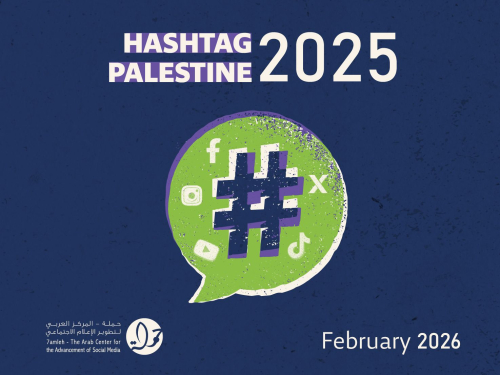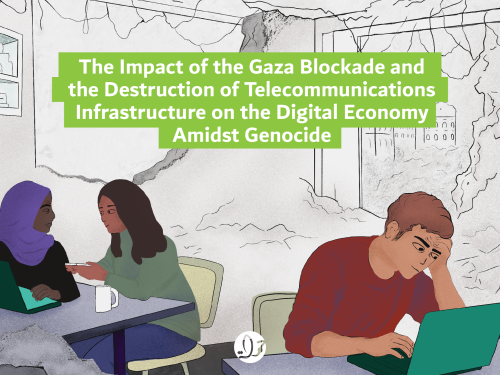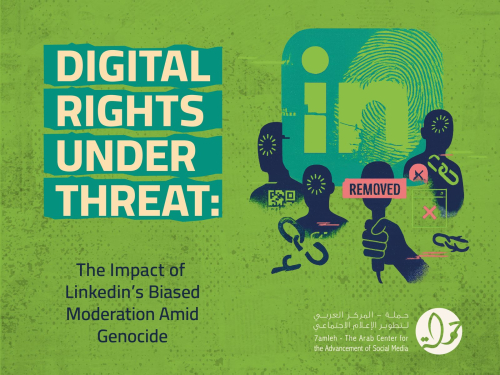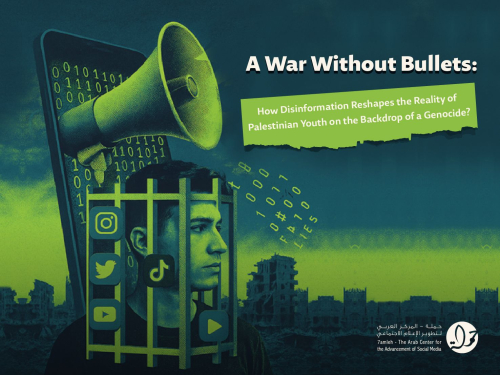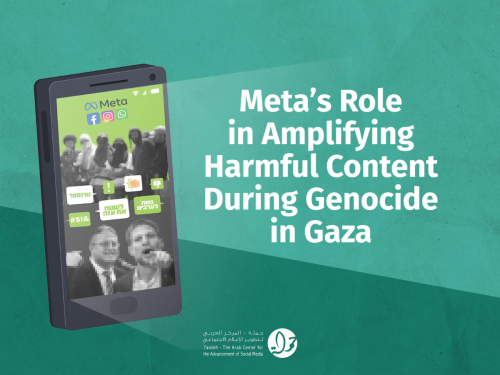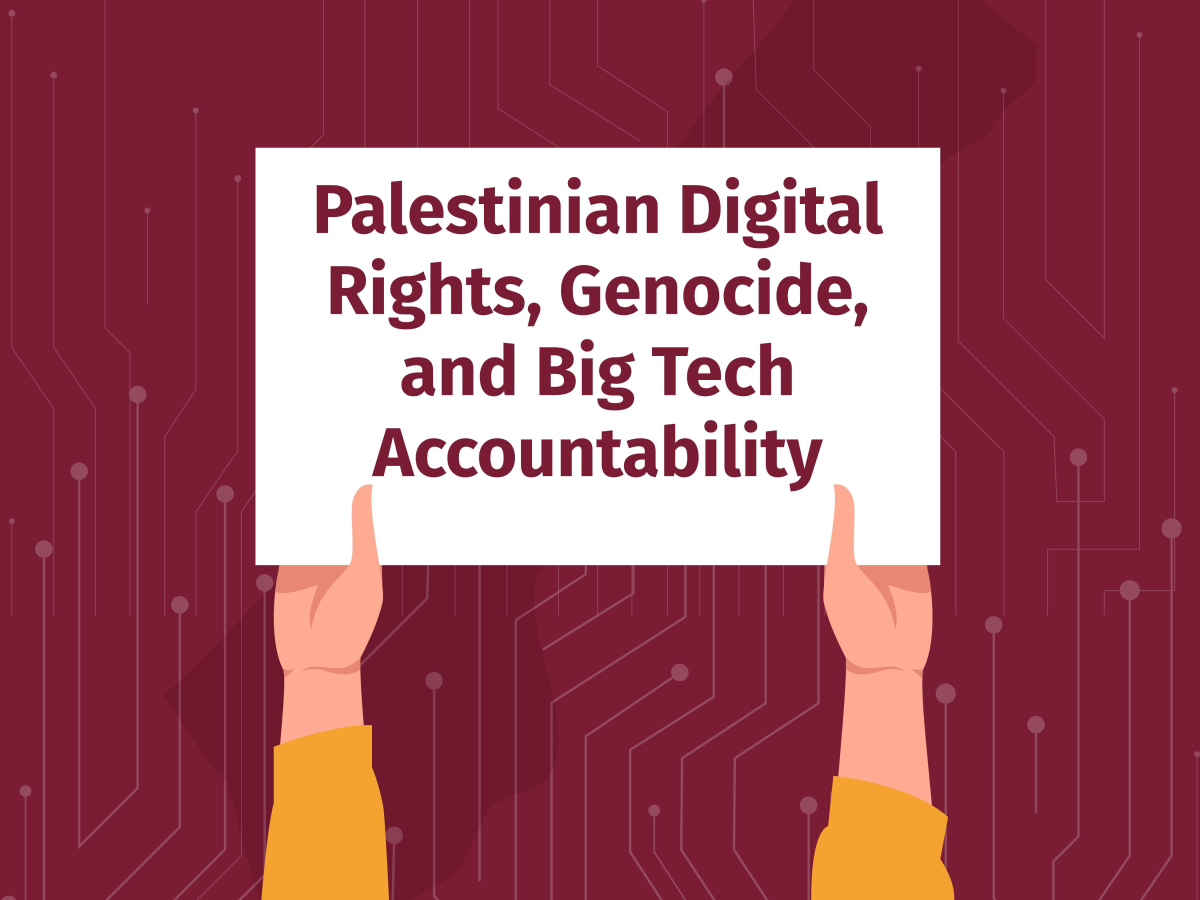
September 16, 2024, 7amleh – The Arab Center for the Advancement of Social Media, after almost one year of the war on Gaza, published a new report titled "Palestinian Digital Rights, Genocide, and Big Tech Accountability." This report highlights the extensive use of technology in committing and exacerbating human rights violations, both by the Israeli government, which has utilized artificial intelligence to target Palestinians, and by tech companies, which have played a significant role in facilitating censorship, withholding information, and indirectly contributing to the efforts of the Israeli government in the context of the ongoing genocide in Gaza over the last year. The report compiles and analyses one year of Palestinian digital rights violations, and emphasizes the urgent need for immediate action to protect digital rights, and for developing accountability mechanisms for tech policies to prevent genocide.
The report examines the role of digital platforms in violating digital rights amidst the genocide through systematic censorship of Palestinian voices and pro-Palestinian content. These violations are facilitated by discriminatory policies and restrictions on the social media accounts of Palestinian journalists and content creators. 7amleh, through its platform 7or - The Palestinian Observatory of Digital Rights Violations, documented over 5100 cases of digital censorship, and spread of harmful content on major platforms such as Meta and X between 7 October 2023 and September 2024. Additionally, the spread of disinformation campaigns was highlighted and shown to undermine freedom of expression, access to information, and the right to security, with false information being used to justify collective punishment against Palestinians and hinder humanitarian aid efforts while more than two million people in Gaza face the threat of starvation.
The report's investigations revealed that some online platforms profit financially from harmful advertising content. For instance, Facebook, owned by Meta, ran targeted ads inciting the assassination of individuals and advocating for the forced expulsion of Palestinians from the West Bank to Jordan. Furthermore, YouTube's advertising policies were found to be non-compliant with human rights standards. The Israeli Ministry of Foreign Affairs promoted advertisements about the ongoing war on Gaza on YouTube, reflecting its ideology to audiences in France, Germany, and the United Kingdom, with a budget of $7.1 million in two weeks after 7 October 2023, in violation of the platform’s own policies.
The report also delves into how artificial intelligence, data collection, surveillance, and automation are interconnected in warfare and have an adverse impact on Palestinian digital rights in the context of Gaza. It underscores the necessity of holding big tech companies accountable and the importance of establishing strict regulations to prevent the use of these technologies in committing international crimes and violations. Israel’s use of internet and wireless communication shutdowns as an illegal warfare tactic during its military campaign in Gaza, aimed at disrupting vital internet and communication services for Palestinians and targeting critical infrastructure, is also documented. The report addresses the historical context of this tactic and its violation of international humanitarian law, presenting it as a major obstacle to documenting severe human rights violations in Gaza.
The report calls for an immediate end to the war as a necessary condition for advancing the protection of Palestinian human and digital rights. It stresses that public and private sector actors must actively collaborate to put an end to the systematic and deliberate discriminatory policies and practices online against Palestinians and those defending Palestinian human rights globally. The report also presents a set of recommendations directed at big tech companies, online platforms, telecommunications companies, and international stakeholders.
For the full report, please visit the link here.
Related Articles
Subscribe to Our Email Alerts
And stay updated with our latest activities, news, and publications!

